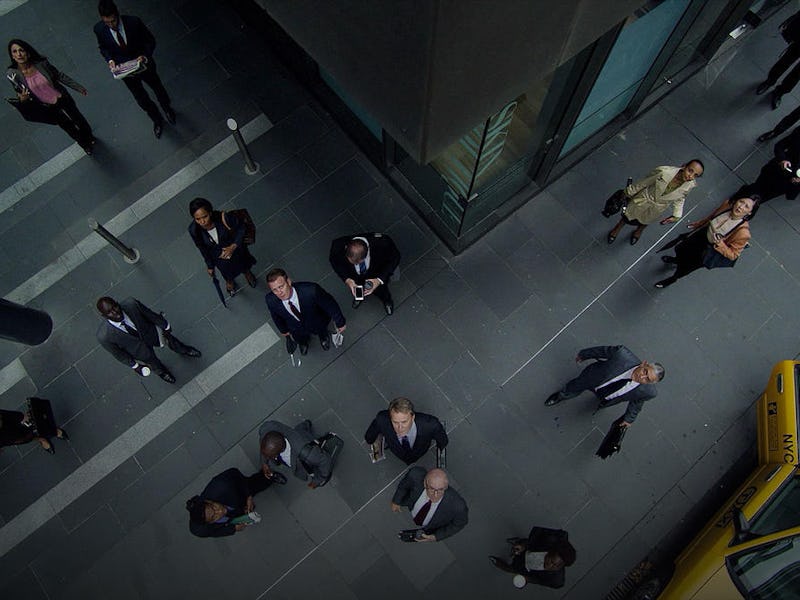Syfy's 'Childhood's End' Will Aggressively Warp Arthur C. Clarke's Ominous Vision for 2015
A three-night, six-hour adaptation, running next week, will attempt to make Arthur C. Clarke's legendarily bizarre 1953 sci-fi novel into a commentary on a society he never saw.

This Monday, the new, improved Syfy that is interested in making things above the level of Minotaur and Tin Man (which had their campy-as-hell moments, by the way) is unleashing two of the most ambitious and high-profile projects of their career in the form of already-acclaimed James S.A. Corey’s interstellar detective story The Expanse and an adaptation of Arthur C. Clarke’s legendary speculative Cold War nightmare Childhood’s End.
For many boomers as well as younger devotees of the classic entries in the genre, seeing the novel finally coming to any screen, big or small, will be a source of nostalgic delight; even younger devotees of the genre will be able to appreciate how big an event this is, though the cult for Clarke’s writing is not as strong today as it was even a couple of decades ago. Clarke is still one of sci-fi most important authors, one of the so-called “Big Three” of the mid-to-late twentieth century, along with Isaac Asimov and Robert Heinlein.
Though many readers remember him more for his series of 2001 novels, Childhood’s End was his first big hit, and an formative work in the science fiction genre — mixing the tradition of Orwell and Bradbury with that of the pulpier sci-fi periodicals like Amazing Stories and Astounding Science Fiction. It also presaged the work of more modern, high-concept sci-fi authors like Philip K. Dick. Clarke was a favorite of Stanley Kubrick, who toyed with a treatment of Childhood’s End before opting for 2001 instead.
Syfy’s version won’t be Kubrick, but it promises to deliver a committed, special effects-laden version of Clarke’s historically significant novel — one which can realize the book’s sprawling vision more accurately than a condensed film adaptation could reasonably have managed.
That is not to say that the mini-series is too concerned with being faithful to the source text: Unlike Amazon’s recent Man in the High Castle, this will not be a period piece. Childhood’s End is being marketed as a What Could Happen parable about our own society, which is interceded upon by an alien race at a time when we Earthlings are getting ahead of ourselves with technology, essentially lost in an entropic sea of endless possibilities for technological expansion and interconnectivity. The Overlords come to establish an eerie sort of order — a kind of 2010’s Levittown. Their overseer is a mysterious “supervisor” figure called ���Karellen” (Charles Dance), who makes offers and promises without clearly laying out what he’s getting out of remaking Earth as a veritable utopia.
The Childhood’s End narrative suggests that there are always trade-offs to any seemingly winning deal; if it seems too good to be true, it probably is. Earth’s slow descent into a new living hell — a homogenized, alien-run surveillance state — will be drawn out for ultimate ethereal, dramatic effect across a full six hours next week. There will be plenty of weird-outs and scares revolving mostly around telekinetic children, mind control of all varieties and of course, the calm and foreboding voice of Charles Dance, booming out all over the globe. Though Dance is the biggest draw, the cast is an experienced team of sci-fi interpreters, such as lead Mike Vogel (Under the Dome) and Star Trek veteran Colm Meaney. Nip/Tuck’s Julian McMahon and Orange is the New Black’s Yael Stone also star.
It’s hard to not be excited, but let’s hope it’s not as by-the-numbers as some of television’s recent adaptations of classic science fiction texts.
Look forward to in-depth coverage of the three-night series from Inverse, as Childhood’s End airs on Monday, Tuesday, and Wednesday at 8 p.m. EST next week.